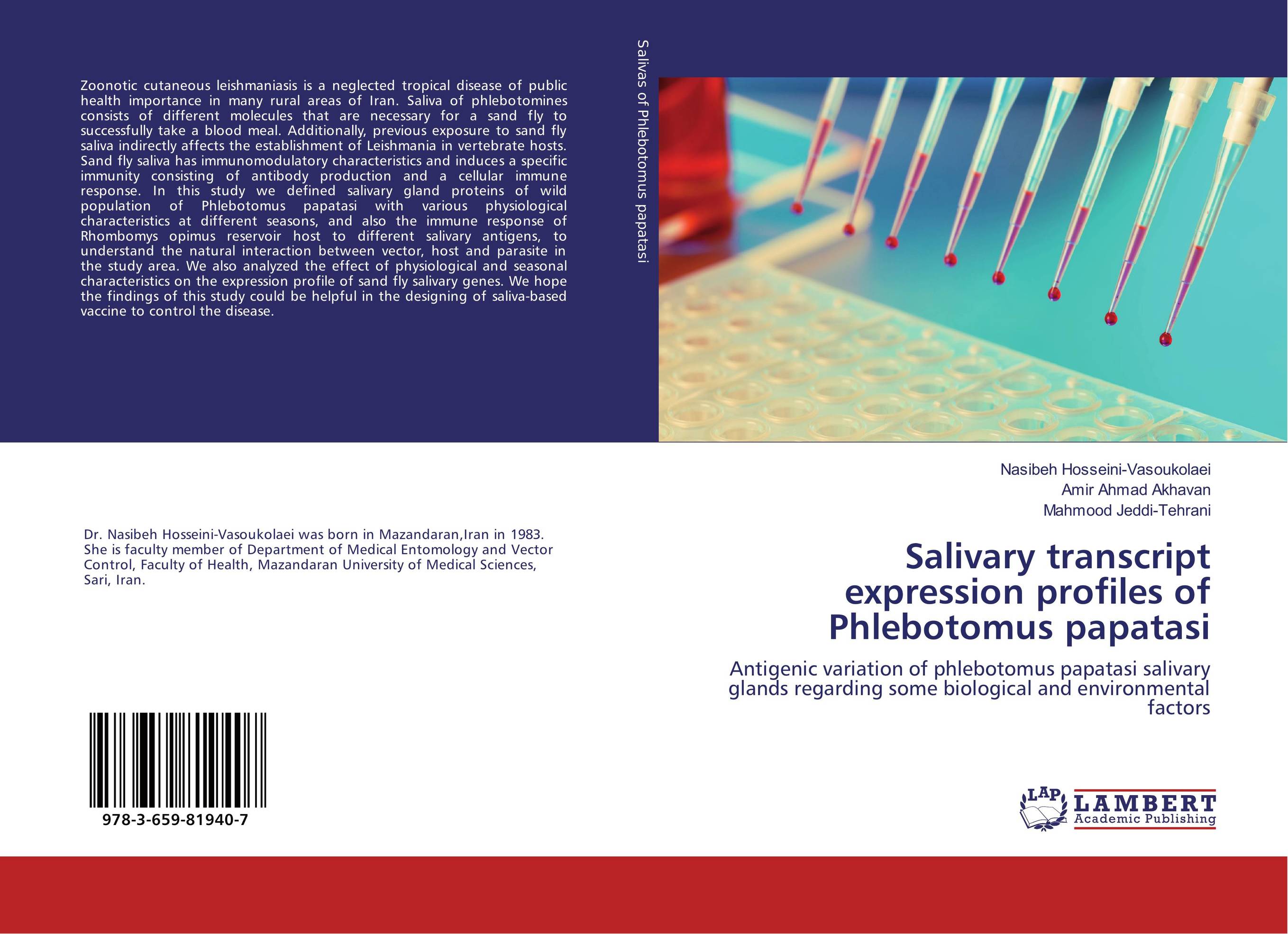| Поиск по каталогу |
|
(строгое соответствие)
|
- Профессиональная
- Научно-популярная
- Художественная
- Публицистика
- Детская
- Искусство
- Хобби, семья, дом
- Спорт
- Путеводители
- Блокноты, тетради, открытки
Salivary transcript expression profiles of Phlebotomus papatasi. Antigenic variation of phlebotomus papatasi salivary glands regarding some biological and environmental factors

В наличии
| Местонахождение: Алматы | Состояние экземпляра: новый |

Бумажная
версия
версия
Автор: Nasibeh Hosseini-Vasoukolaei,Amir Ahmad Akhavan and Mahmood Jeddi-Tehrani
ISBN: 9783659819407
Год издания: 2016
Формат книги: 60×90/16 (145×215 мм)
Количество страниц: 120
Издательство: LAP LAMBERT Academic Publishing
Цена: 21952 тг
Положить в корзину
| Способы доставки в город Алматы * комплектация (срок до отгрузки) не более 2 рабочих дней |
| Самовывоз из города Алматы (пункты самовывоза партнёра CDEK) |
| Курьерская доставка CDEK из города Москва |
| Доставка Почтой России из города Москва |
Аннотация: Zoonotic cutaneous leishmaniasis is a neglected tropical disease of public health importance in many rural areas of Iran. Saliva of phlebotomines consists of different molecules that are necessary for a sand fly to successfully take a blood meal. Additionally, previous exposure to sand fly saliva indirectly affects the establishment of Leishmania in vertebrate hosts. Sand fly saliva has immunomodulatory characteristics and induces a specific immunity consisting of antibody production and a cellular immune response. In this study we defined salivary gland proteins of wild population of Phlebotomus papatasi with various physiological characteristics at different seasons, and also the immune response of Rhombomys opimus reservoir host to different salivary antigens, to understand the natural interaction between vector, host and parasite in the study area. We also analyzed the effect of physiological and seasonal characteristics on the expression profile of sand fly salivary genes. We hope the findings of this study could be helpful in the designing of saliva-based vaccine to control the disease.
Ключевые слова: Phlebotomus papatasi, Rhombomys opimus, Saliva, antibody response, Gene Expression, Leishmaniamajor



